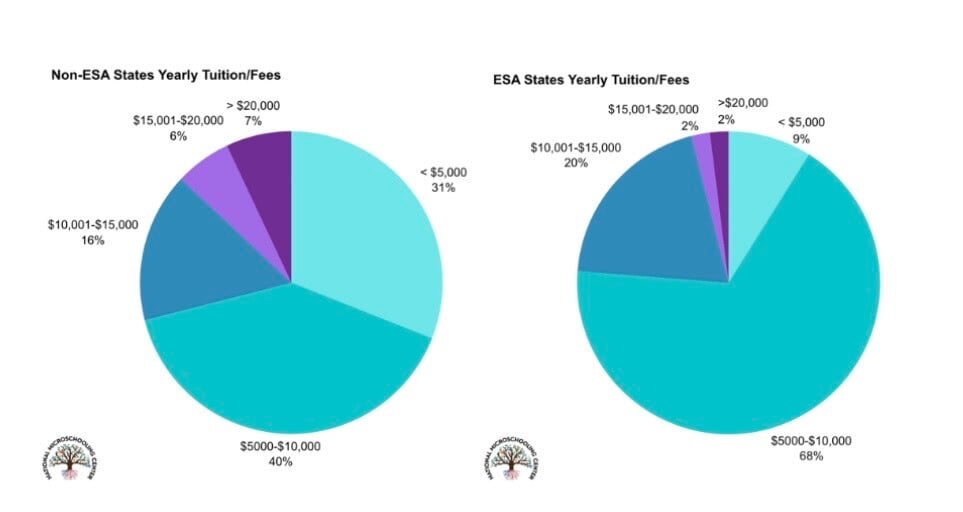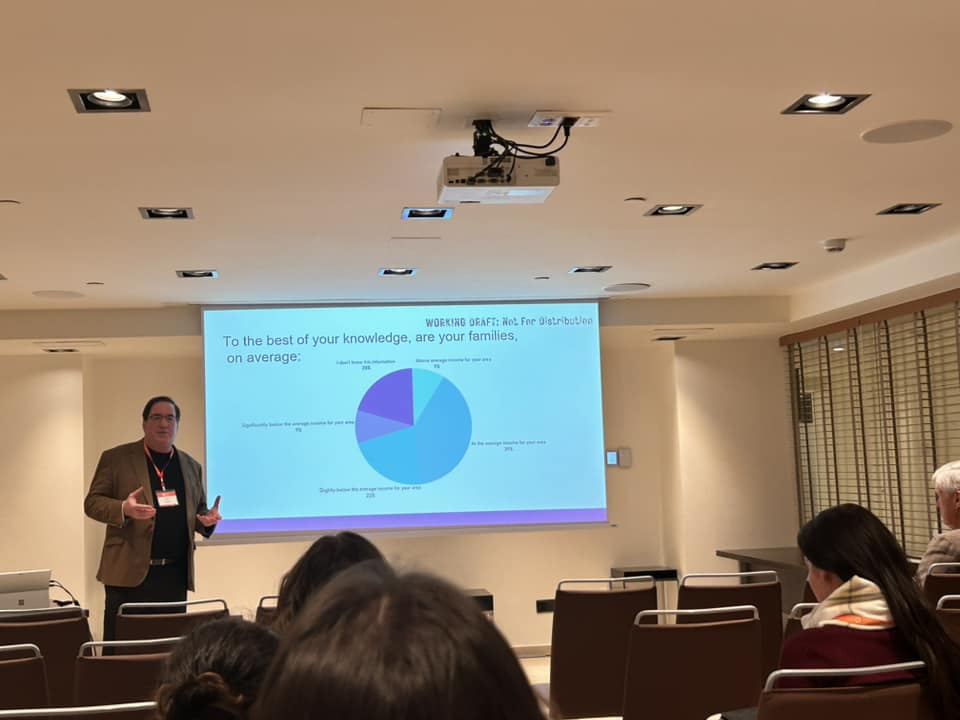How ESAs Affect Microschools' Tuition
When parents can utilize the ESA funds their child qualifies for in their state to spend on tuition and fees to attend a microschool, how does this...

Most microschools offer tuition discounts, regardless of whether they've received philanthropic support.
This summer, first-year Terre Haute, Indiana microschool founder Jessica Probst offered a tuition discount to a family she knew was in need and offered to extend their payments out a month or two, “Even before I knew I would be receiving any philanthropic funds. It felt like the right thing to do for the sake of the child.”
Slightly more than half – 56% - of microschools in the National Microschooling Center’s American Microschools 2025 Sector Analysis reported that they had received philanthropic support at levels of $5,000 or more.
Among this same group of founders in the study, 65 percent of microschools surveyed nationally offer families of the children they serve some sort of sliding scale tuition or discounts on what they pay.
An interesting insight into how today’s microschools conduct their business comes from the connection, or actually the lack of connection, between these two factors.
“Our microschool receives little-to-no philanthropic support, but we do offer two scholarships to families paying out of pocket, explained Little Rock, Arkansas' Foundation Christian Microschool founder Ar’Jillian Gillmer. “Application and approval by a group of my peers is required.”
Whether or not a microschool had received philanthropic support had no effect on whether they offered discounts or sliding scale tuition to families. Of microschools that reported that they had received philanthropic support, 64 percent reported giving discounts, while 65 percent of microschools that had received no philanthropic support still offered these discounts.
"Many microschools now face sustainability challenges due to not consistently charging tuition equal to their operations' costs, mine included," explained Chattanooga’s Discovery Learning Academy founder Rachel Good. "But in the same spirit of innovation and passion for the learners we built the schools for, I am confident we will find creative ways to sustain our schools financially while working with families to serve the children we set out to serve, regardless of their family's income level."

When parents can utilize the ESA funds their child qualifies for in their state to spend on tuition and fees to attend a microschool, how does this...

At the Center, we have a different take on sustainability in the microschooling movement and in one word, it’s dynamism. Earlier we discussed...
.jpg)
Pay for Success Models, including Social Impact Bonds, have a relatively limited and recent history in the United States. These innovative,...